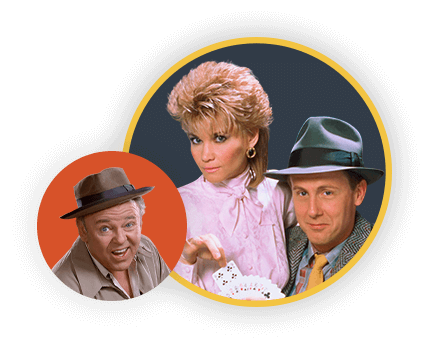The 9 most bizarre Grammy winners of the 1960s and 1970s

Top image: AP Photo
"We got two of the five Grammys — one was Best New Artist. So that was basically the kiss of death and I feel sorry for everyone who's gotten it since."
So said Taffy Danoff years later in an interview. Who is Taffy Danoff, you ask? Exactly. She was one fourth of a quartet we will get to below.
Since their inception in 1959, the Grammy Awards have been continually criticized for being stuffy, staid and behind the curve. No category has received quite as much heat as Best New Artist, which is frankly misperceived as a kiss of death. Looking back over the 57 annual ceremonies, the vast majority of winners are of merit. It is all a matter of taste, after all.
The following entries on this list are not bad artists. This is not an indictment of their talent. They are merely curious selections from a sea of options, or perhaps just fascinating reminders of a bygone era.

Bob Newhart – Album of the Year and Best New Artist, 1961
Look, we love Bob Newhart. He is a genius and an American treasure. It just seems a bit odd to give a Best New Artist Grammy to a comedian. Indeed, he is the only funnyman to win the award. This 1960 comedy album went straight to the top of the charts, beating Elvis. And it beat two classic Sinatra records (Come Fly with Me and Only the Lonely) for Album of the Year. Ol' Blue Eyes certainly has more than his fair share of awards, as we shall see, but this one is an outlier for the Grammys.

Vaughn Meader 'The First Family' – Album of the Year, 1963
Newhart was not the only comedian to take home a big award. At least Newhart is a household name. Vaughn Meader was a JFK impersonator who sold millions of this satirical album of sketches. Somehow this beat out the groundbreaking Modern Sounds in Country and Western Music by Ray Charles

Boston Symphony Orchestra 'Bartók: Concerto No. 2 for Violin/Stravinsky: Concerto for Violin' – Best Recording Package, 1966
Sure, it's an pretty album cover. Same things goes for for Paul Horn's Jazz Suite on the Mass Texts, which took home the photographic album cover Grammy that year. Yet they look quite generic. Any random classic eligible that year is more striking — Rubber Soul, Highway 61 Revisited, A Love Supreme, Help!, The Kinks Kontroversy… Voters were just in a very rainbow-colored-rectangle-on-black-background mood in 1965.

Frank Sinatra 'A Man and His Music' – Album of the Year, 1967
Sinatra is one of the top three pop culture figures of the 20th century. No disrespect. However, this was an album of re-recorded greatest hits. And it somehow edged the Beatles' Revolver. As well as, um, Herb Alpert and Barbra Streisand. Wait, how was Pet Sounds not nominated?

O.C. Smith "Little Green Apples" – Song of the Year, 1969
The love song is cute. It rhymes Doctor Seuss with Mother Goose, and apples with Indianapolis. Yet we're guessing more people could karaoke along to "Mrs. Robinson" and "Hey Jude."

Marvin Hamlisch – Best New Artist, 1975
He is the Grammy winner who sits atop of the Who's Who List of… Who? The songwriter did pen some of the most recognizable movie tunes of the decade, like the brilliant Bond theme "Nobody Does It Better." That being said, the behind-the-scenes musician won this for an album of old-timey ragtime? The category is not built for composers. Can't hate on the guy, though. Hamlisch is a trophy magnet. He's one of just twelve people ever to EGOT.
Image: AP Photo

Starland Vocal Band – Best New Artist, 1977
Perhaps the most infamous of all Grammy winners, the vocal foursome earned this honor on the back of "Afternoon Delight." Taffy Danoff (there she is!) may have deemed this a curse, but Cyndi Lauper, Sade, Bruce Hornsby, Mariah Carey turned out all right, as did previous winners Carly Simon, Bette Midler, The Carpenters…

Debby Boone – Best New Artist, 1978
She lit up the life of Grammy voters with her ubiquitous adult contemporary hit. The daughter of Pat Boone later shifted into country, and later Christian pop.

A Taste of Honey – Best New Artist, 1979
Yes, this category went through a weird stretch in the late-'70s. Disco duo ATOH scored a smash with "Boogie Oogie Oogie." That groove was enough to beat out Elvis Costello and the Cars. The twosome would have one other chart success in 1981, a cover of the Japanese ballad "Ue o Muite Arukō," which was nonsensically retitled "Sukiyaki" for America.




